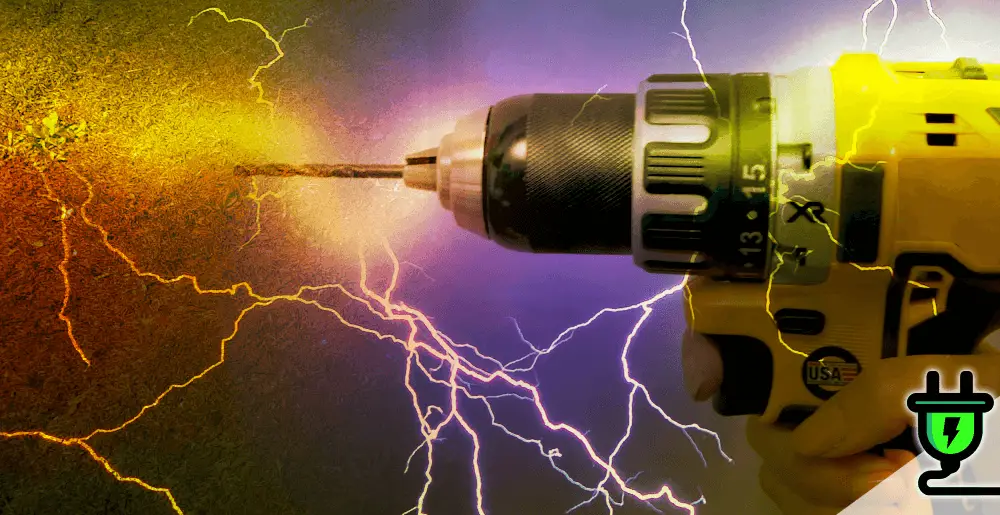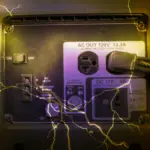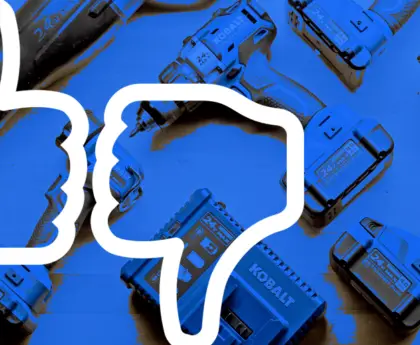Accidents can happen! You could be working on a DIY project in your home and accidentally drill into a live wire. But, what happens if you drill into a live wire?
Drilling through an electric cable can cause a short circuit, producing heat that may lead to electrical shocks, sparks, or fires.
This scary misstep is more common than you think, with the potential to cause severe damage.
This article aims to explain what happens if you drill into a live wire, educating you on the consequences on both property and personal safety. Intrigued? Let’s crack down on this electrifying subject!
What Happens if You Drill into a Live Wire?
Drilling into a live wire can result in damage to property and personal harm.
Damage to property
Drilling into a live wire poses significant risks to property. It can spark, pop, and often results in a power outage. The forceful drive of electricity can damage surrounding materials leading to additional repair costs.
In particular, electrical fires might erupt from sparking wires, jeopardizing not just the drilled area but also adjacent parts of the property. Moreover, drilling accidents can disrupt electrical systems throughout the residence or business premises causing further inconvenience and financial loss.
Personal harm
Drilling into a live wire can be extremely dangerous and may result in personal harm. If you accidentally hit an electrical wire while drilling, there is a risk of receiving an electric shock.
This can cause severe discomfort, burns, or even more serious injuries. It is important to remember that the severity of personal harm will depend on factors such as the voltage of the wire, the condition of your drill bit, and how you come into contact with the exposed wire.
Always exercise caution when working near electrical wires to protect yourself from potential harm.
How to Prevent Drilling Through Wires
To prevent drilling through wires, limit the depth of your drill and avoid forcing it into the wall. Anchor vertical wiring at the center of studs and use a wire or stud finder to locate potential hazards before drilling.
Limit the depth of your drill
Limiting the depth of your drill is crucial when it comes to preventing damage to electrical wires. By controlling the depth, you reduce the risk of accidentally hitting a live wire while drilling into walls or other surfaces.
This precautionary measure helps avoid potential sparks, power outages, and even personal harm. By being mindful of how far you are drilling, you can significantly minimize the chances of damaging electrical wires and protect yourself from potentially dangerous situations.
Don’t force it
Forcing your drill into a wall can increase the risk of drilling into live wires and causing serious damage. When you encounter resistance while drilling, it’s important not to push harder or apply excessive pressure.
Doing so can lead to accidental contact with electrical cables, resulting in sparks, power outages, or even electric shock. Take your time and exercise caution when drilling to avoid unnecessary risks and potential harm.
It’s better to be patient and ensure safety than to force the drill and potentially cause severe consequences.
Anchor vertical wiring at the center of the studs
To prevent drilling accidents and damage to electrical wiring, it is essential to anchor vertical wiring at the center of the studs. This ensures that the wires are securely fastened and less likely to be accidentally hit while drilling into walls.
By anchoring the wiring in this way, you can significantly reduce the risk of damaging wires and causing power outages or even electrical shocks. Taking this simple precautionary measure helps maintain electrical safety during renovations or any other projects that involve drilling into walls.
Use a wire or stud finder
Using a wire or stud finder is an essential step in preventing drilling accidents and damaging electrical wires. These devices are designed to detect the presence of hidden wires or studs behind walls, ensuring that you can drill safely without hitting any live wires.
By using a wire or stud finder before drilling, you greatly reduce the risk of sparking wires, power loss, and potential personal harm. So always remember to use these tools as part of your preparation process to ensure a safe drilling experience.
What to Do if You Drill Through a Wire in a Wall
If you accidentally drill through a wire in a wall, it is important to turn off the electricity immediately and assess the damage before taking steps to repair it.
Turn off the electricity
To prevent any further damage or potential harm, it is crucial to turn off the electricity immediately after drilling into a live wire. This will help eliminate the risk of electric shock and reduce the chances of causing additional sparks or electrical fires.
Turning off the power supply also allows you to safely assess the situation and determine the extent of the damage without putting yourself at risk. Remember, prioritizing your safety should always be your first step when dealing with electrical accidents.
Examine the damage
After drilling into a live wire, it is crucial to examine the damage carefully. Look for any visible signs of wire damage, such as exposed wires or frayed insulation. Check if there are any sparks or smoke coming from the area where you drilled.
Take note of any power loss in nearby outlets or switches. It’s important to remember that even if there are no immediate visible signs of damage, there could still be internal wiring issues that need attention.
Therefore, it is best to seek professional help to assess and repair the damage caused by drilling into a live wire.
When examining the damage caused by drilling into live wires, keep in mind that safety should always be a priority. Avoid touching anything in the vicinity until an electrician has declared it safe.
Repair the damage
If you accidentally drill into a live wire and damage it, it is crucial to take immediate action. First, turn off the electricity to prevent any further harm. Then, carefully examine the extent of the damage caused to the wire.
Depending on the severity, you may need to repair or replace the damaged section. Remember, dealing with electrical repairs can be dangerous if you are not properly trained, so it’s best to call a professional electrician who can handle the situation safely and effectively.
Taking prompt action and seeking professional help will ensure that the damaged wire is repaired correctly and minimize any risks associated with electrical hazards.
How Does a Live Wire Look from the Inside?
Drilling into a live wire can have serious consequences, but have you ever wondered what a live wire actually looks like from the inside? When drilling through a wire, you may notice that it is made up of several components.
At its core, there is usually a conductor material such as copper or aluminum. This conductor is surrounded by insulation, which helps to protect the wire and prevent electrical accidents.
Additionally, some wires may also have an outer sheath for added protection. Seeing the inside of a live wire can be fascinating, but it’s important to remember that tampering with or damaging these wires can result in dangerous electrical shocks and power outages.
What Happens If You Drill Into A Live Wire FAQs
Can drilling into a live wire be dangerous?
Yes, drilling into a live wire can be extremely dangerous as it can result in electrocution or other serious injuries.
What should I do if I accidentally drill into a live wire?
If you accidentally drill into a live wire, immediately turn off the power supply at the main breaker and contact an electrician for assistance.
How can I prevent drilling into a live wire?
To prevent drilling into a live wire, always use stud finders or cable detectors before starting any drilling work and ensure that all electrical wiring is properly identified and marked in your home.
Conclusion: What Happens If You Drill Into A Live Wire?
Fact is, drilling into a live wire can have serious consequences. It can cause damage to your property and personal harm. To prevent drilling through wires, make sure to limit the depth of your drill and use tools like stud finders to locate wires beforehand.
And if you do accidentally drill through a wire, remember to turn off the electricity before examining and repairing the damage. Stay safe and take precautions when working around electrical wires!






